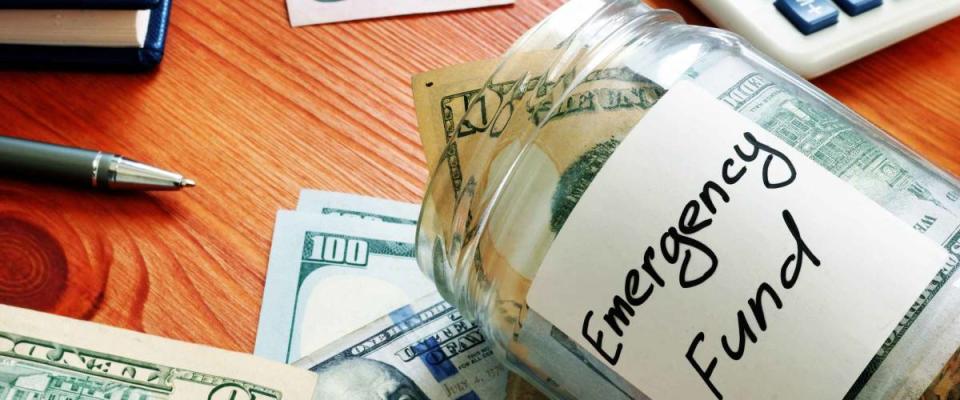Suze Orman calls buy now, pay later plans a ‘gateway to overspending’

Online shopping has hit astronomical highs this past year as more Americans opted to shop from the comfort and safety of their homes.
More shoppers than ever are also making use of “Buy now, pay later” (BNPL) programs to fund their purchases. Afterpay, one of the leading lenders in this category, reported U.S. monthly sales of $2.1 billion last November — which is more than double compared to the year before.
These programs, which allow you to put down a small amount upfront and pay the rest in installments later, recently prompted personal finance expert Suze Orman to call the plans a “gateway to overspending.”
Here’s more on why Orman feels they’re a slippery slope and what she recommends you do instead.
What worries Orman about these plans

BNPL programs are generally structured to only require 25% down at the time of purchase. You’ll pay off the remaining balance in another few payments every few weeks — all with no interest (provided you make your payments on time).
“When you only have to pay $25 immediately for a $100 purchase, your brain starts playing tricks on you, and tells you that this is such a great deal, because it’s only costing you $25,” she writes.
The science of overspending
“What seems like a great deal can actually be a gateway to overspending,” Orman writes.
Studies show that when you don’t have to pay your entire bill at checkout, you’ll keep spending.
Nearly half of those who reported using a buy now, pay later program said they spent an additional 10% to 40% with these plans compared to when they use their credit cards, according to a 2020 survey by Cardify.ai — landing them in debt they can’t manage.
Two-thirds of shoppers who have used a buy now, pay later service said they typically buy more than they would if they had to pay for everything upfront. And 47% said they wouldn’t have made their full purchase if they didn’t have the option to finance, according to a new survey from LendingTree.
In addition to overspending, BNPL options can lead to other financial issues. While 42% of Americans report having used some sort of buy now, pay later service, 38% of them have reported missing at least one payment, according to a Credit Karma/Qualtrics survey.
Missing a payment will not only result in a late charge, but 72% of those surveyed who missed a payment also reported a hit to their credit score.
What Orman suggests instead

First, Orman suggests assessing whether the purchase is a need or a want. When it’s a want, she encourages you to ask yourself: Can you actually afford it?
“It’s not just a matter of being able to make all the payments on time,” she writes in her blog. “The bigger issue is what you might be able to do with those dollars if you didn’t use them to buy that want.”
Instead, Orman has a few suggestions of which financial goals you should prioritize before caving to wants you can’t realistically afford.
Prepare for emergencies. Orman says the pandemic has highlighted the need for robust emergency funds. She recommends having a full year’s worth of living expenses set aside. Put your money aside in a savings account where it will continue to grow.
Deal with your debt. Even if you’ve just been buying essentials, charging to your credit card can result in expensive interest piling up. If you’ve been relying on plastic to get you through the pandemic, rein in your debt — and pay it off sooner — by folding your balances into a single lower-interest debt consolidation loan.
Save for retirement. While we’re all just trying to get through today, don’t forget to ensure you have a comfortable tomorrow by contributing to your retirement account. An important part of planning for the future may also mean investing in an affordable life insurance policy to ensure your family is set in the long-term too.
Other options if you need to make a big purchase

If money is tight and you’re planning to make a big, necessary purchase in the near future, you have a few options to make room in your budget.
Ensure you’re getting the best price on insurance. By shopping around for the cheapest policies, you could potentially trim $1,100 off your car insurance costs this year. And while you’re at it, why not cut your homeowners insurance bill by another hundreds of dollars a month, too?
Refinance your mortgage and save hundreds. If you took out a mortgage as recently as a year ago, refinancing to one of today’s low mortgage rates could save you a huge chunk of change. Some 13 million homeowners have the potential to save $283 per month by refinancing their loan, says the mortgage technology and data provider Black Knight.
Invest what you can spare. Even if you’re a total novice with investing or you don’t have much to put into it, there’s an investing option designed just for you. Download an investing app that will help you turn your spare change into a real portfolio. In no time, you’ll be racking up some serious coin.
